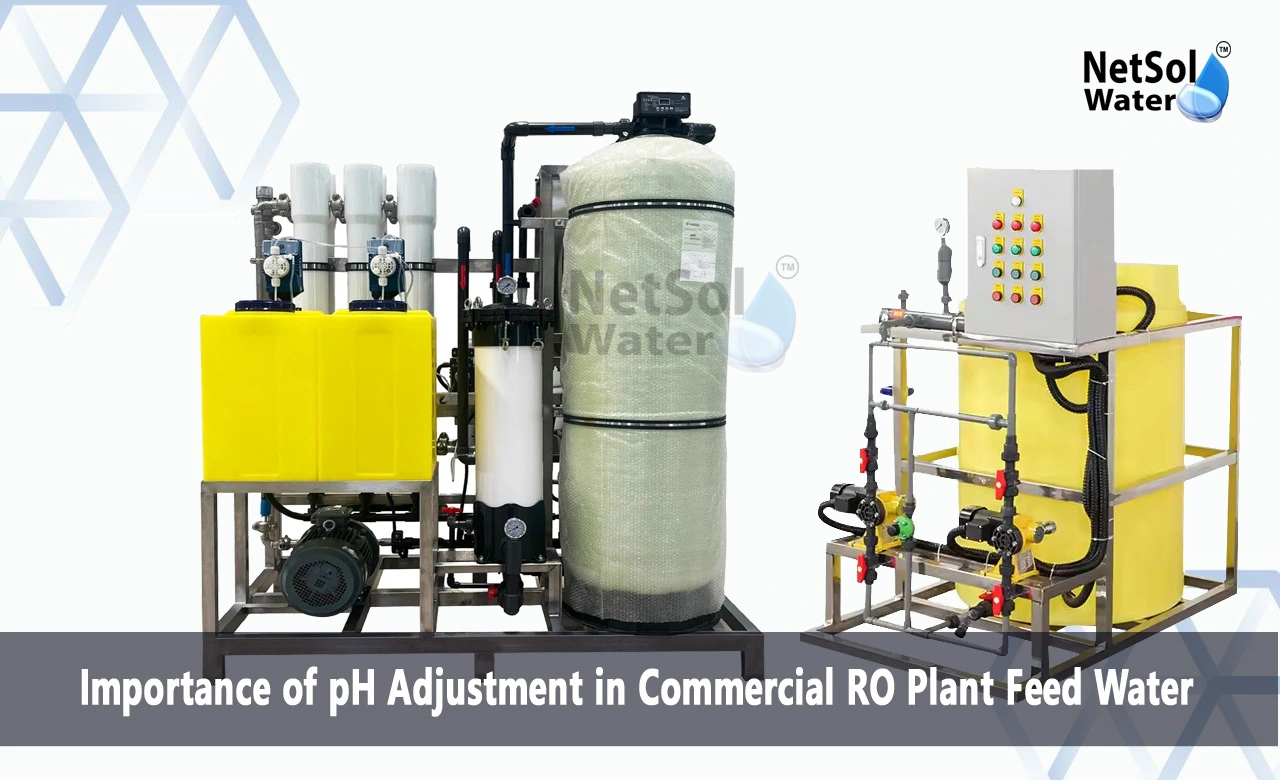Importance of pH Adjustment in Commercial RO Plant Feed Water
For commercial RO plants tasked with purifying water for industry, carefully monitoring and adjusting feed water pH is crucial for optimizing treatment performance and protecting membrane elements. Proper pH adjustment of the feed water is a critical factor that directly impacts system performance, membrane longevity, and the quality of the product water. The pH, which measures the acidity or basicity of a solution, can significantly influence the efficiency and lifespan of RO membranes. If the pH is not within the recommended range, it can lead to a variety of issues, including scaling, fouling, and membrane degradation. Scaling occurs when dissolved minerals precipitate and form deposits on the membrane surface, blocking pores and reducing water flow. Fouling, on the other hand, is the accumulation of organic matter and contaminants, which can promote bacterial growth and compromise water quality. Extreme pH levels can also cause chemical degradation of the membranes themselves. Therefore, pH adjustment becomes crucial in commercial RO plants to create an environment that minimises these challenges, enhances overall system performance, and extends the lifespan of costly membranes.
We are going to learn the importance of pH adjustment in RO plant feed water.
Preventing Membrane Scaling
One of the most important reasons for pH adjustment in commercial RO plants is preventing membrane scaling - the precipitation and accumulation of sparingly soluble salts onto the membrane surface. These salt scales act as a fouling layer restricting permeate flow.Key scalants like calcium carbonate, barium sulfate, and silica are highly dependent on pH levels. Maintaining the proper feed pH keeps these dissolved ions in solution rather than precipitating onto membranes. Acidic pH adjustment is typically used to control carbonate scaling.
Extending Membrane Life
Beyond just scaling, improper pH also damages RO membranes through oxidation and hydrolysis reactions attacking the membrane polymer itself.Most thin-film composite polyamide membranes have an optimal pH window of roughly 4-11 for peak performance and longevity. Sustained exposure to very low pH can oxidise the membranes, while high alkaline pH causes hydrolytic degradation over time.Keeping feed pH within specified ranges extends membrane element lifespan and avoids premature failures or performance declines.
Optimizing Pretreatment Efficacy
The role of pH adjustment begins even before the RO membranes in the pretreatment system. Many commercial RO plants use acids or bases to enhance:
· Coagulant and flocculant performance for removing particulates/colloids
· Oxidant disinfection using chlorine or other oxidizers
· Prevention of metal hydroxide precipitation on pretreatment media
· Softening efficacy for calcium/magnesium removal
Improper pH can severely limit the effectiveness of these crucial pretreatment processes designed to protect downstream RO membranes.
Other Operational Benefits
Additional advantages proper feed pH provides commercial RO plants include:
· Minimizing calcium phosphate scaling on cartridge filters
· Reducing biogrowth and biofilm formation on membranes
· Optimizing antiscalant and dispersant additive performance
· Facilitating effective membrane cleaning and sanitization
Whether employing acid, caustic, or CO2 injection - dialing in the right pH directly impacts RO operational reliability, runtime between cleanings, and overall system performance.
Conclusion
While often underappreciated, precisely controlling feed water pH is paramount for reliable and efficient commercial RO plant operations treating a variety of source waters. Between protecting membranes, optimising pretreatment, and ensuring smooth operation - pH adjustment is important.As membrane technology advances and more challenging water sources get treated, implementing robust pH control will become even more critical. Investing in feed pH management provides substantial returns by minimising downtime, maintenance, and premature membrane replacements. For commercial RO plants, mastering feed pH adjustment delivers major dividends across the entire treatment process.
To explore customised Commercial RO plants, Industrial RO plants, ETP or STP solutions for your needs in your areas and nearby regions, contact Netsol Water at:
Phone: +91-965-060-8473, Email: enquiry@netsolwater.com



